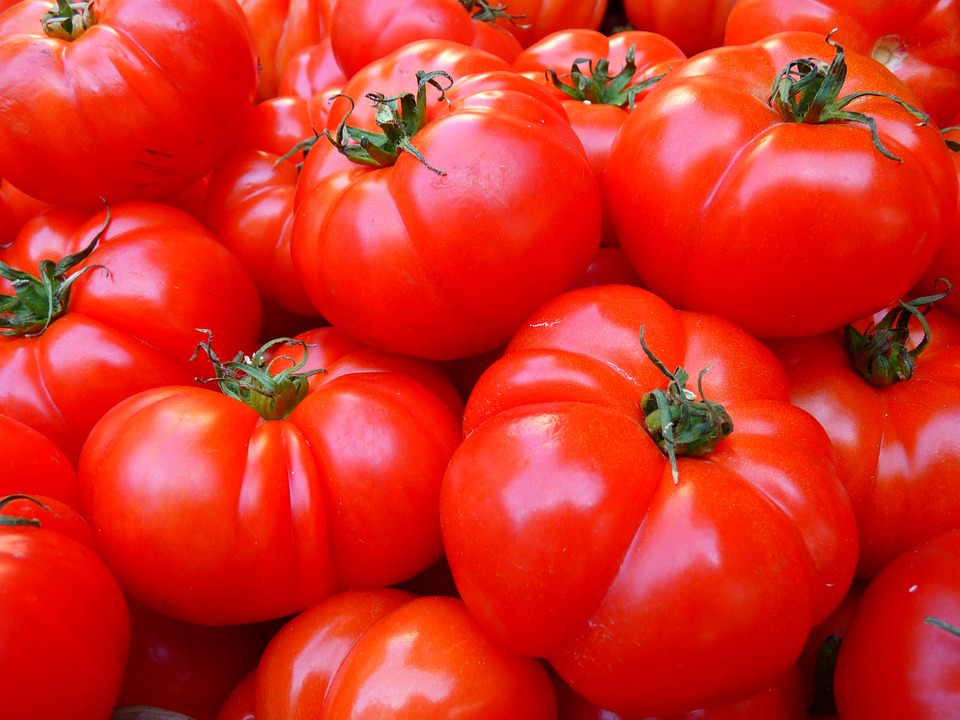gastric bypass Surgery: Eating After
Gastric bypass surgery, also known as Bariatric surgery, is a weight loss procedure that involves reducing the size of the stomach and rerouting the digestive system. This surgery is often recommended for individuals who are severely obese and have not had success with other weight loss methods. One of the key components of successful recovery after gastric bypass surgery is adjusting to a new way of eating. In this article, we will explore the dietary guidelines and eating habits that are crucial for individuals who have undergone gastric bypass surgery.
Transitioning to Solid Foods
After gastric bypass surgery, patients must follow a gradual progression from a liquid diet to solid foods. This transition typically begins with clear liquids, such as broth and sugar-free gelatin, before moving on to full liquids like protein shakes and yogurt. Eventually, patients can start introducing pureed and soft foods, such as mashed vegetables and ground meats. It is important for patients to follow their healthcare provider’s guidelines and slowly reintroduce solid foods to prevent complications and ensure proper digestion.
Importance of Protein
Protein is an essential nutrient for individuals who have undergone gastric bypass surgery. Protein helps promote healing, maintain muscle mass, and support overall health. Patients should focus on consuming lean sources of protein, such as chicken, fish, tofu, and legumes. It is recommended that patients aim to consume at least 60-80 grams of protein per day to meet their nutritional needs. Protein supplements may also be recommended to help patients meet their protein requirements.
Portion Control and Mindful Eating
After gastric bypass surgery, patients will have a smaller stomach capacity, which means they will need to practice portion control and mindful eating. It is important for patients to listen to their body’s hunger and fullness cues and avoid overeating. Patients should aim to eat small, frequent meals throughout the day and chew their food thoroughly to aid in digestion. It is also important for patients to focus on nutrient-dense foods, such as fruits, vegetables, whole grains, and lean proteins, to ensure they are meeting their nutritional needs.
Hydration and Nutritional Supplements
Staying hydrated is crucial for individuals who have undergone gastric bypass surgery. Patients should aim to drink at least 64 ounces of water per day to prevent dehydration and promote proper digestion. It is also important for patients to take their prescribed nutritional supplements, such as multivitamins, calcium, and vitamin B12, to prevent nutrient deficiencies. Patients may need to work with a registered dietitian to ensure they are meeting their nutritional needs and make any necessary adjustments to their supplement regimen.
Mindful Eating and Support
In addition to following dietary guidelines, individuals who have undergone gastric bypass surgery should focus on practicing mindful eating and seeking support from healthcare providers, dietitians, and support groups. Mindful eating involves paying attention to the taste, texture, and satisfaction of food, as well as recognizing hunger and fullness cues. Support from healthcare providers and peers can help patients navigate the challenges of adjusting to a new way of eating and provide encouragement and motivation along the way.
In conclusion, eating after gastric bypass surgery requires a significant adjustment in dietary habits and eating behaviors. Patients must follow a gradual progression from liquids to solid foods, focus on consuming adequate protein, practice portion control and mindful eating, stay hydrated, take nutritional supplements, and seek support from healthcare providers and peers. By following these guidelines and making lifestyle changes, individuals who have undergone gastric bypass surgery can achieve successful weight loss and improve their overall health and well-being.
Frequently Requested Questions Regarding Gastric Bypass Surgery Eating After
How should I eat after gastric bypass surgery?
After undergoing gastric bypass surgery, it is crucial to follow a strict eating plan to ensure successful weight loss and proper healing. Here are some important guidelines to keep in mind when it comes to your post-surgery diet:
– Eat small, frequent meals throughout the day to avoid overeating and to help your body adjust to the changes.
– Focus on consuming protein-rich foods such as lean meats, fish, eggs, and dairy products to promote muscle growth and repair.
– Avoid high-sugar and high-fat foods as they can cause discomfort and may hinder your weight loss progress.
What types of foods should I avoid after gastric bypass surgery?
Following gastric bypass surgery, there are certain foods that you should steer clear of to prevent complications and promote a healthy recovery. Here are some examples of foods to avoid:
– Sugary beverages and snacks that can cause dumping syndrome and lead to discomfort.
– Fatty and greasy foods that can be difficult to digest and may cause nausea or vomiting.
– Fibrous foods such as raw vegetables and fruits with skins that can cause blockages in your digestive system.
How can I stay hydrated after gastric bypass surgery?
Proper hydration is essential for your overall health and well-being, especially after gastric bypass surgery. Here are some tips to help you stay hydrated:
– Drink small sips of water throughout the day to prevent dehydration and promote healing.
– Avoid drinking liquids with meals as they can fill up your stomach and prevent you from getting enough nutrients.
– Carry a water bottle with you at all times to remind yourself to stay hydrated and to track your fluid intake.
What are some common eating challenges after gastric bypass surgery?
While gastric bypass surgery can be a life-changing procedure for many individuals, it can also come with its own set of challenges when it comes to eating. Here are some common eating challenges that you may encounter:
– Difficulty tolerating certain foods, especially those that are high in sugar or fat.
– Feeling full quickly, which can make it challenging to get enough nutrients throughout the day.
– Developing food intolerances or sensitivities that may require you to adjust your diet accordingly.
How can I ensure long-term success with my post-surgery diet?
Maintaining a healthy diet and lifestyle after gastric bypass surgery is crucial for long-term success and weight loss maintenance. Here are some tips to help you stay on track:
– Attend regular follow-up appointments with your healthcare team to monitor your progress and address any concerns.
– Stay active and incorporate regular exercise into your routine to support your weight loss goals and overall health.
– Seek support from a dietitian or support group to stay motivated and accountable on your weight loss journey.
Wrong Assumptions About Gastric Bypass Surgery Eating After
Common Misconceptions about Gastric Bypass Surgery Eating After
One common Misconception about gastric bypass surgery is that patients can no longer enjoy food or eat the foods they love. This is not entirely true, as patients can still enjoy a variety of foods after surgery, but in smaller portions.
Another misconception is that patients will never feel hungry again after gastric bypass surgery. While the surgery may reduce the feeling of hunger in some patients, it does not eliminate hunger altogether. Patients may still experience hunger, but it may be less intense than before the surgery.
Impact on Nutrient Absorption
There is a misconception that gastric bypass surgery leads to malnutrition due to reduced nutrient absorption. While it is true that the surgery can affect nutrient absorption, patients can mitigate this by following a balanced diet and taking supplements as recommended by their healthcare provider.
Some people believe that gastric bypass surgery eliminates the need for healthy eating habits. However, maintaining a healthy diet is crucial after surgery to ensure proper healing, weight loss, and overall well-being. Patients are advised to focus on nutrient-dense foods to meet their nutritional needs.
Weight Loss Expectations
One common misconception about gastric bypass surgery is that it guarantees rapid and significant weight loss. While many patients do experience substantial weight loss after surgery, individual results may vary. Factors such as adherence to dietary guidelines, physical activity levels, and overall health can impact the rate and amount of weight loss.
There is a misconception that gastric bypass surgery is a quick fix for obesity and that patients will never struggle with weight management again. In reality, weight loss surgery is a tool that requires ongoing commitment to lifestyle changes, including diet modifications and regular exercise, to maintain long-term success.
Food Restrictions
Some people believe that gastric bypass surgery completely restricts what patients can eat, leading to a monotonous and limited diet. While there are certain foods that patients are advised to avoid or limit, such as high-fat or high-sugar foods, patients can still enjoy a wide variety of foods in moderation.
A common misconception is that patients must follow a strict liquid diet indefinitely after gastric bypass surgery. While a liquid diet is typically recommended in the immediate post-operative period, patients gradually transition to solid foods under the guidance of their healthcare team. It is important for patients to reintroduce solid foods slowly and listen to their body’s cues.
Regaining Weight
There is a misconception that once weight is lost after gastric bypass surgery, it will never be regained. While many patients experience significant weight loss following surgery, some may gradually regain weight over time if they do not adhere to recommended dietary and lifestyle changes. Regular follow-up with healthcare providers is essential to monitor progress and address any challenges.
Another misconception is that weight regain after gastric bypass surgery is a sign of failure. It is important for patients to understand that weight loss and maintenance are ongoing processes that require dedication and commitment. Seeking support from healthcare professionals, support groups, and loved ones can help patients navigate challenges and stay on track with their weight loss goals.
In conclusion, there are several common misconceptions about gastric bypass surgery and eating after the procedure. It is important for patients to educate themselves about the surgery, follow their healthcare provider’s recommendations, and make sustainable lifestyle changes to achieve long-term success. By dispelling these misconceptions and focusing on realistic expectations, patients can optimize their outcomes and improve their overall health and well-being.
Gastric Bypass Surgery Eating After
#gastric #bypass #surgery #important #follow #specific #eating #plan #ensure #proper #healing #weight #loss #general #guidelines #eating #gastric #bypass #surgerybr

